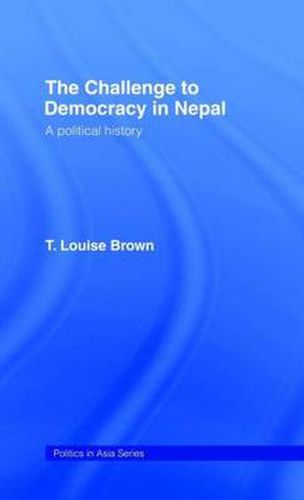Readings Newsletter
Become a Readings Member to make your shopping experience even easier.
Sign in or sign up for free!
You’re not far away from qualifying for FREE standard shipping within Australia
You’ve qualified for FREE standard shipping within Australia
The cart is loading…






In 1990 Nepal’s Peoples Movement reduced King Birendra from an absolute ruler to a constitutional monarch. This book is the first academic analysis of these events and places the ‘revolution’ of 1990 within the context of Nepali history. Louise Brown examines the background to Nepal’s recent upheavals as well as covering the country’s early history and its continuing problems of national integration. The previous, unsuccessful, democratic experiment and the nature of monarchical rule are discussed within an analysis of Nepal’s social and economic modernisation. The evolution of political parties, Nepal’s foreign relations and development issues - and the way in which these have moulded the political system - are explored in depth. Drawing on extensive interviews with leading politicians and influential figures the author provides a comprehensive survey of the Himalayan Kingdom’s political development. This is an original contribution to the debate on democratization in the developing world.
$9.00 standard shipping within Australia
FREE standard shipping within Australia for orders over $100.00
Express & International shipping calculated at checkout
In 1990 Nepal’s Peoples Movement reduced King Birendra from an absolute ruler to a constitutional monarch. This book is the first academic analysis of these events and places the ‘revolution’ of 1990 within the context of Nepali history. Louise Brown examines the background to Nepal’s recent upheavals as well as covering the country’s early history and its continuing problems of national integration. The previous, unsuccessful, democratic experiment and the nature of monarchical rule are discussed within an analysis of Nepal’s social and economic modernisation. The evolution of political parties, Nepal’s foreign relations and development issues - and the way in which these have moulded the political system - are explored in depth. Drawing on extensive interviews with leading politicians and influential figures the author provides a comprehensive survey of the Himalayan Kingdom’s political development. This is an original contribution to the debate on democratization in the developing world.